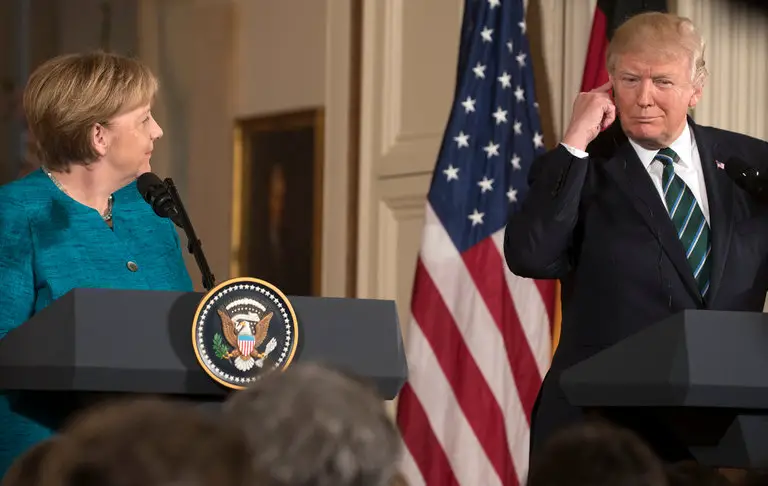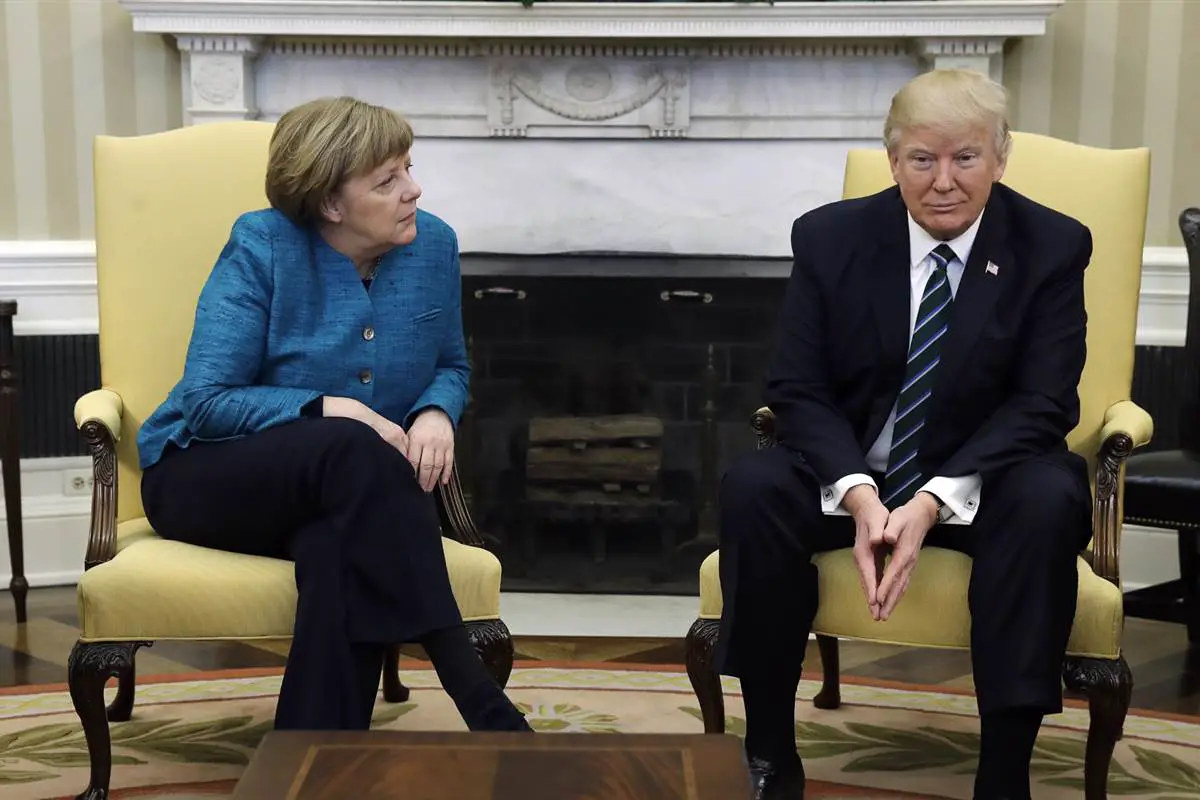If you’ve been reading the news, you’ve probably had a hard time avoiding some of the speculation about the relationship between German Chancellor Angela Merkel and President Trump. Despite both being relative political outsiders: Merkel, a former research scientist and Trump, the former host of “Celebrity Apprentice,” the two seem to be almost complete opposites politically as well as personally.
Trump is the kind of guy who shows up for meetings unprepared, flagrantly unleashing jabs at political opponents at completely inopportune times. You know the type; he’s a loose cannon who can’t be trusted, but my god, is he entertaining.
Merkel, on the other hand, is the archetypal preacher’s daughter: self-possessed and dour, with her bowl haircut and pantsuits. Though she makes Hilary Clinton look like a barrel of laughs, there is something oddly reassuring about her. Which is good news, because that’s precisely what the world is looking to her for now, whether she likes it or not.

Since Germany’s peaceful reunification in the early 90s, the country has grown to become the biggest economy in Europe and a symbol of stability and dependability around the globe. Although it has tried to play as small of a role as possible in foreign affairs, its role in the international stage has been increasing over the past couple of decades, albeit reluctantly.
After the trauma Germany inflicted on the world during WWII and the reciprocal trauma the German people have undergone in its wake, they want nothing more than to go peacefully about their business as an economic giant, avoiding the trappings of global responsibility. However, this is increasingly not the case.
The election of Trump in the U.S. and the vote for Brexit in the UK have dramatically changed the structure of global politics and created much uncertainty. For years, the UK has served as the closest European ally of the United States and conduit to influence within the E.U.. However, that role has been slowly shifting to Germany, and Britain’s decision to leave the E.U. has only solidified this shift.
Although the Obama administration did much to facilitate this change in power dynamics, Trump has served as an unprecedented monkey wrench in the process.
His potential collusion with the Russians presents a conflict of interest for Germany, whose relationship with Russia has soured since Vladimir Putin’s provocation of war in Ukraine in 2014. and Merkel’s consequential sanctions program against the Russian government. Since that time, Germany has been looking to the U.S. where they would traditionally look to Russia. However, with Trump in office, it appears that they are stuck between a rock and a hard place.
During their highly publicized recent press conference, Trump continued to grill Merkel over NATO, which he has expressed doubts over and which she has continued to defend. Aside from calling the alliance “obsolete,” Trump has also blamed NATO for allowing countries, like Germany, to reap the benefits of American largess without fair payment in return.
“Germany owes vast sums of money to NATO & the United States must be paid more for the powerful, and very expensive, defense it provides to Germany!” Trump said recently.
Aside from this, Trump is also a major advocate in dismantling free-trade agreements, which Germany benefits from. His decision to withdraw from the Trans-Pacific Partnership (TPP) sent a warning signal to Germany, which planned to sign the Transatlantic Trade and Investment Partnership (TTIP). But, the conflicts between the self-styled dismantler of globalism and the defender of the neo-liberal world order don’t stop there.

Since his days on the campaign trail, Trump has also been vocally critical of Merkel’s immigration policy, which has sheltered over a million refugees form Iraq and Syria; he has called it a “catastrophic mistake” and more recently said, “Immigration is a privilege, not a right.’’
Merkel is reacting how one might expect, cautiously avoiding conflict and promising to judge Trump on his actions rather than his words; keeping the peace but all the while carefully studying his every move and waiting for a mistake.
The question now is, with two political strong-men at the helm in Russia and the U.S., who view international politics as a zero-sum game, what will Germany’s role be, and will they shift in the direction of Washington D.C. or Moscow? One thing is for certain: In these hectic times, Merkel and her pantsuits sure are a global comfort.

















